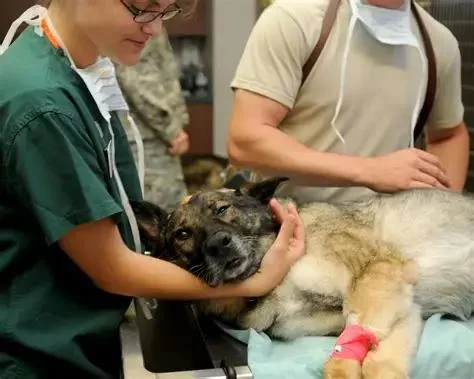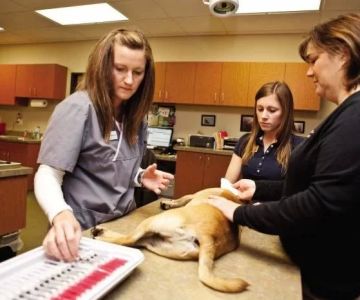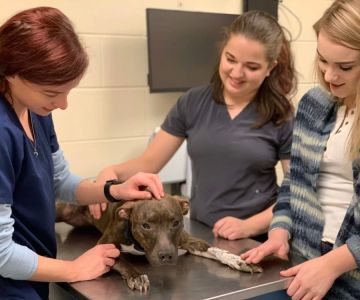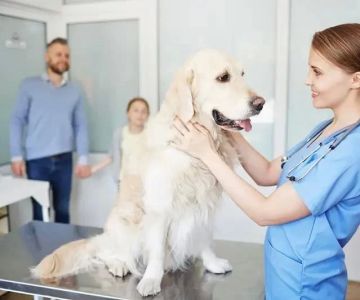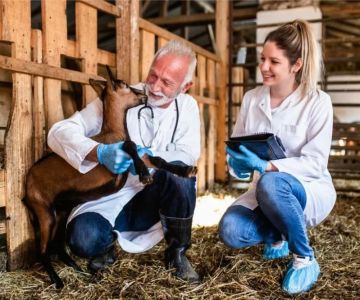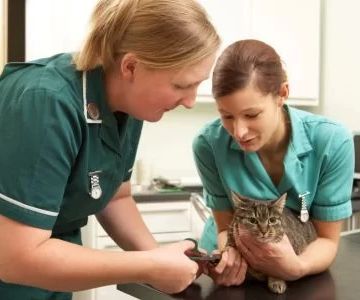- 1-Differences-Between-Veterinary-Doctors-And-Human-Doctors
- 2-Legal-And-Medical-Boundaries-Of-Veterinary-Doctors-Treating-Humans
- 3-Cases-Where-Veterinary-Medicine-Overlaps-With-Human-Treatment
- 4-Potential-Risks-And-Ethical-Considerations
- 5-How-Professional-Advice-Can-Guide-Your-Health-Decisions
1. Differences Between Veterinary Doctors and Human Doctors
When asking can veterinary doctors treat human patients, it’s vital to first understand the clear differences between veterinary doctors and medical doctors. Veterinary doctors specialize in animal health across numerous species, while medical doctors focus exclusively on human health.
Their training, diagnostic tools, and treatment protocols are designed for fundamentally different biological systems, reflecting the diverse complexities of human versus animal medicine.
1.1 Educational and Licensing Distinctions
Veterinarians undergo specific veterinary medical education and licensing, which does not authorize them to practice human medicine.
1.2 Scope of Practice
Their medical practice is legally and professionally confined to animals, ensuring safety and ethical standards in both fields.
2. Legal and Medical Boundaries of Veterinary Doctors Treating Humans
Legally, veterinary doctors are prohibited from diagnosing or treating humans. Doing so can lead to severe legal consequences and health risks. Medical licensure strictly regulates who can provide care to human patients to ensure public safety.
Understanding these boundaries protects both patients and practitioners from harmful practices.
2.1 Laws Governing Medical Practice
State and federal laws clearly delineate medical versus veterinary practice scopes.
2.2 Consequences of Unauthorized Practice
Unauthorized treatment by veterinary doctors can result in legal action, including fines and license revocation.
3. Cases Where Veterinary Medicine Overlaps with Human Treatment
Despite the separation, veterinary research often informs human medicine, especially in drug development and disease study. Certain medications originally designed for animals have parallels in human treatments but require proper approval.
Additionally, veterinary expertise in zoonotic diseases (those transmissible between animals and humans) contributes to public health knowledge.
3.1 Shared Medical Knowledge
Comparative medicine bridges veterinary and human health sciences, benefiting both fields.
3.2 Veterinary Drugs in Human Use
Some veterinary drugs have human equivalents, but usage must follow strict medical guidelines.
4. Potential Risks and Ethical Considerations
Using veterinary treatments on humans without medical supervision poses significant health risks, including incorrect dosing, adverse reactions, and lack of evidence-based efficacy. Ethically, veterinary doctors must adhere to professional standards and not extend their practice beyond animals.
4.1 Health Risks of Off-Label Use
Human physiology differs vastly from animals; inappropriate treatment can cause harm or delay proper care.
4.2 Ethical Responsibility
Veterinarians prioritize animal welfare and public safety by respecting their professional limits.
5. How Professional Advice Can Guide Your Health Decisions
For concerns about human health, always seek advice from licensed medical professionals. While veterinary doctors contribute immensely to animal and comparative medicine, human treatment requires qualified human doctors.
If you’re interested in trusted healthcare products or expert medical guidance, explore reputable providers and consult licensed practitioners to ensure safe and effective care.
Understanding the boundaries between a veterinary doctor and human medical care empowers you to make informed health decisions for yourself and your loved ones.

